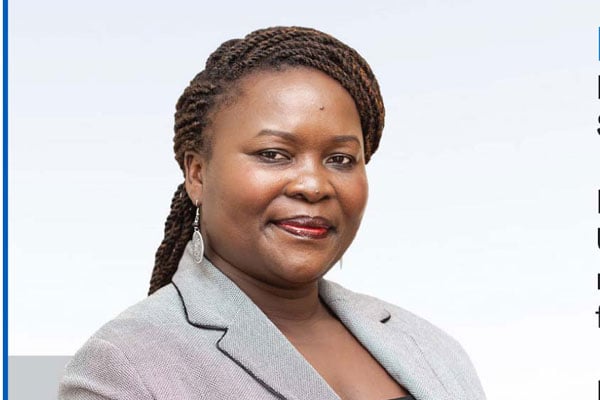Media awards should empower journalists

Emilly C. Maractho
What you need to know:
- I did not even understand why I was grieving like I knew him personally. I would miss for sure, the Africa Business Report which he did every week, that made me feel knowledgeable about the continent and appreciate its diversity.
I was in Accra, Ghana in 2014 when the BBC’s Komlar Dumor died. I sat there in my hotel room watching the news and tears were flowing.
I did not even understand why I was grieving like I knew him personally. I would miss for sure, the Africa Business Report which he did every week, that made me feel knowledgeable about the continent and appreciate its diversity.
Dumor had also made my date with the BBC’s Focus on Africa non-negotiable. For decades, I have remained loyal to that segment of BBC news. It inspired an appreciation for public service media, news diversity and developed an eye for a good story.
For the week that followed, I bought all Ghanaian English dailies, reading the public grief that engulfed Accra. Ghanaian politicians were mourning as if their best ambassador had vanished in thin air.
One could understand them. But why would a Ugandan who has never met Dumor grieve the way I did? Because he was an exceptional story teller that humanised every story.
It was not surprising, that the BBC would honor Komla Dumor with an excellence in African Journalism award. The award is BBC’s investment in African Journalism, which two Ugandans have so far won - Nancy Kacungura (2015) and Solomon Sserwanja (2019).
Komla had made the African story not just about the good things in Africa, but told the balanced story, calling it his obligation to tell all the stories that matter.
It is always wonderful seeing exceptional journalism rewarded. The African Centre for Media Excellence (ACME), on Friday, September 11, awarded several journalists for excellence in journalism in 19 categories. It was exciting going through the many stores submitted. A total of 241 entries from 123 journalists were submitted for the competition, although only 16 per cent make up women.
Sixteen of us participated in assessing the stories.
As judges, we were gratified to see the interest in submission demonstrated by the hundreds of stories submitted and the general improvement in some of the categories. While the number of women participating was of obvious concern, it is the general lessons I turn to today.
One of the obvious thing that is often taken for granted, is the initiative of the journalists. We quickly cite the many problems that journalism faces and the state of the media to explain the sometimes less than impressive reporting. But we learnt that enterprise, the ability of the journalist to tell an ordinary story in an extraordinary way, with unique angles, is an important element of a winning story.
The other for me was the hiring of great talent to tell good stories. It was clear that some of the story tellers were gifted in their craft. We grapple with why most of the talent that leaves training institutions sizzle out of the newsroom but who is hiring them? It is no accident that the winners were dominated by certain individuals and media houses. That is not to say there were no good stories from elsewhere, but because talent rarely gets deployed in what sometimes we call hard-to-reach areas.
There is also the question of facilitation. If a media house has talent, providing them with the tools to work is crucial. My friends and I are sometimes conflicted in the discussion of ethical journalism in the face of poor facilitation.
Finally, diversity of voices counts in every story. While we decried the low participation of women journalists in the stories, the other area of concern is the voices of women in general stories. If stories are told from the perspective of one gender, they contribute to impairing the world view of the missing gender and dehumanise them. It is the responsibility of journalists to also tell the balanced story, not just from the perspective of the subject matter, but also the sources in the story.
Telling a balanced and factual story is something that only the reporter has to deal with. It was interesting for most of us in the same categories to pick up the same winning stories, because the winning story stands out. Those who wish to participate in these competitions may wish to ensure that they invest in some winning stories.
Part of what appeared to work well was also collaborative stories, where teams worked together to produce an outstanding story and shared their win. In future, reporters can make their editors of those specific stories also part of the teams to address the whole question of facilitation.
Ms Maractho is the head and senior lecturer, Department of Journalism and Media Studies at UCU.
[email protected]




